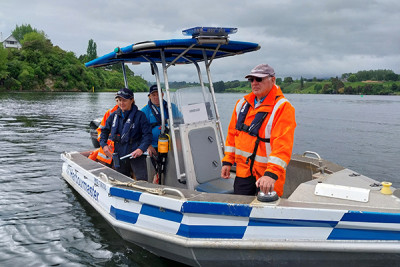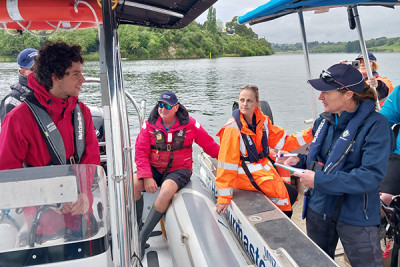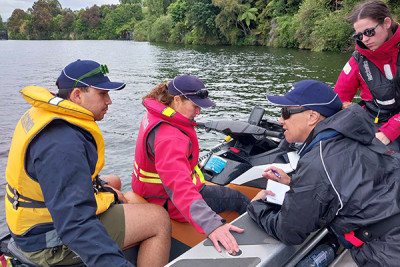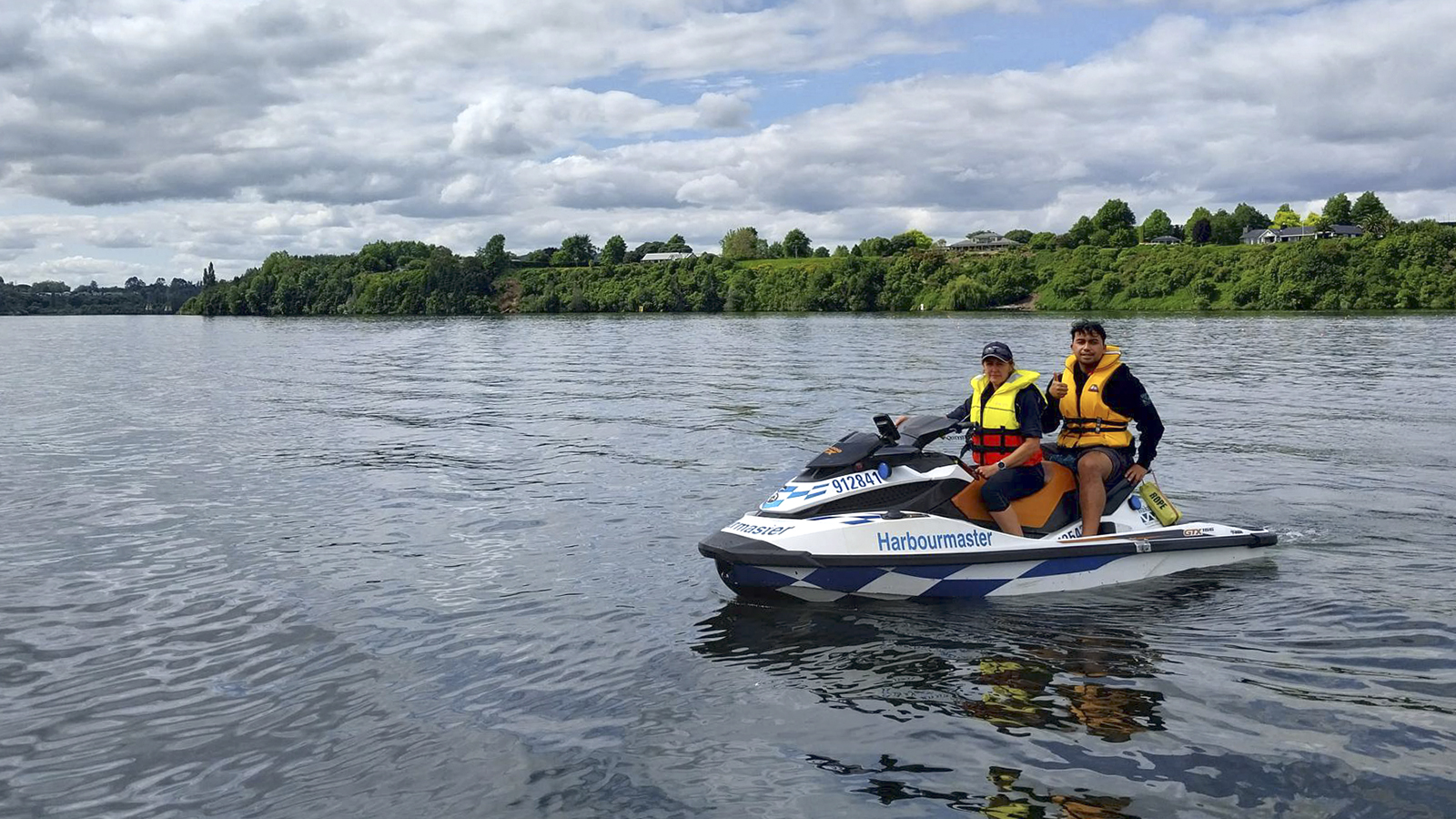"Education ends at the boat ramp, so it’s the skipper’s responsibility to ensure they know the rules and comply with them on the water."
- Chris Bredenbeck, Regional Harbourmaster

Having signaled for another vessel to stop, Novalea prepares to talk to the skipper during an Operation Neptune training exercise on Lake Karapiro.
Waikato Regional Council’s annual summer boat safety programme has moved a step closer with the training of additional staff.
The annual Operation Neptune will run for about three weeks during the summer boating peak between Boxing Day and 14 January 2024 taking in popular coastal, lake and river boating areas across the Waikato region.
“Operation Neptune is about providing a proactive presence on the water, with the emphasis on boating safety and enforcement of boating rules,” says Waikato Regional Harbourmaster, Chris Bredenbeck.
“We’ll be looking closely at whether boaties are following the rules including around personal flotation devices (PFDs), speed limits and the need for towing with an observer in place.”
Some 25 council staff from across the organisation attended training in November as they prepared to bolster the ranks of the year-round Maritime Services team for the three weeks of Operation Neptune.
The two-day training included classroom time along with practical exercises at Lake Karāpiro. Staff learned to recognise different boat speeds, familiarised themselves with harbourmaster vessels and safety equipment, discussed safety scenarios, and practised man overboard drills.
A key focus involved simulated interactions with members of the public on the water. Students practised stopping boats and addressing skippers about not following boating safety regulations.
Operation Neptune team members will be deployed on nine council-branded vessels – featuring flashing lights and sirens or horns – which range in size from jetskis to a seven-metre boat. Others may be working close to the water, such as at boat ramps.

Novalea collects details from fellow trainee Tane during an Operation Neptune training exercise on Lake Karapiro.
“I enjoy being part of Operation Neptune every time I do it and always learn something new.” – Novalea Crowe, Incident Response Officer
This summer will be Theresa Horan’s first deployment with Operation Neptune. Currently an engagement specialist with the council, Theresa previously worked in the Customer Experience Support team.
“What attracted me to help with Operation Neptune was the opportunity to work with people on the water and to support the Maritime Services team,” says Theresa.
Theresa described the training as “awesome”, with new trainees well-integrated into the team.
“The training included a good amount of very detailed information in a well-organised programme and I felt like I learned a lot.”
Theresa will be based at three different Waikato hydrolakes over the summer.
For fellow staff member, Novalea Crowe, this summer will be her fourth with Operation Neptune. Novalea first joined the programme in 2016 and is returning after a break. She has worked in coastal waters as well as hydrolakes and rivers throughout the Waikato region.
In the course of her usual duties, as an incident response officer, Novalea deals with unexpected situations involving environmental impacts from discharges into water or air from accidents or incidents.
“What attracted me to Operation Neptune is a combination of being on the water and the positive interactions with people who are enjoying boating activities as part of their summer holidays,” says Novalea. “It is quite a different sort of vibe from my usual work which involves responding to accidents and mishaps.
“I also like working with the Maritime Services team and the diversity of other council staff who are taking part in the programme.”
Novalea says the training was very practically focused and an excellent refresher.
“I enjoy being part of Operation Neptune every time I do it and always learn something new.”
Novalea will be working across a cross-section of Waikato recreational waters: the coast, a lake and several rivers.

Theresa talks to the skipper of a jet ski which has pulled up alongside a Harbourmaster vessel on Lake Karapiro during training for Operation Neptune.
“We do this important work to ensure everyone comes home safe.” – Chris Bredenbeck, Regional Harbourmaster
Chris says the Waikato has some of New Zealand’s most popular coastline as well as inland waterways, with lots of people expected to be taking to the water over summer.
“Boat skippers are encouraged to review the boating rules before they launch their vessel, helping to keep themselves and others safe,” says Chris.
“We take the view that education ends at the boat ramp, so it’s the skipper’s responsibility to ensure they know the rules and comply with them on the water.
“We do this important work to ensure everyone comes home safe.”
Waikato Regional Council maritime officers on patrol can issue breach notices that can lead to fines of up to $200 per offence.



To ask for help or report a problem, contact us
Tell us how we can improve the information on this page. (optional)